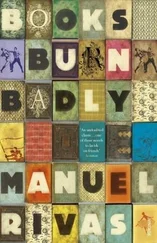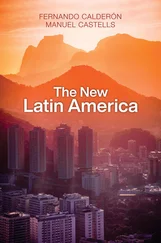Manuel Rivas - The Low Voices
Здесь есть возможность читать онлайн «Manuel Rivas - The Low Voices» весь текст электронной книги совершенно бесплатно (целиком полную версию без сокращений). В некоторых случаях можно слушать аудио, скачать через торрент в формате fb2 и присутствует краткое содержание. Год выпуска: 2016, Издательство: Harvill Secker, Жанр: Современная проза, на английском языке. Описание произведения, (предисловие) а так же отзывы посетителей доступны на портале библиотеки ЛибКат.
- Название:The Low Voices
- Автор:
- Издательство:Harvill Secker
- Жанр:
- Год:2016
- ISBN:нет данных
- Рейтинг книги:5 / 5. Голосов: 1
-
Избранное:Добавить в избранное
- Отзывы:
-
Ваша оценка:
- 100
- 1
- 2
- 3
- 4
- 5
The Low Voices: краткое содержание, описание и аннотация
Предлагаем к чтению аннотацию, описание, краткое содержание или предисловие (зависит от того, что написал сам автор книги «The Low Voices»). Если вы не нашли необходимую информацию о книге — напишите в комментариях, мы постараемся отыскать её.
A brilliant coming-of-age novel from one of Spain’s greatest storytellers,
is a humorous and philosophical take on memory, belonging, and the nature of storytelling itself.
The Low Voices — читать онлайн бесплатно полную книгу (весь текст) целиком
Ниже представлен текст книги, разбитый по страницам. Система сохранения места последней прочитанной страницы, позволяет с удобством читать онлайн бесплатно книгу «The Low Voices», без необходимости каждый раз заново искать на чём Вы остановились. Поставьте закладку, и сможете в любой момент перейти на страницу, на которой закончили чтение.
Интервал:
Закладка:
We would climb and sit on the cuckoo’s neck, feel the excitement of those who have always dreamed of flying. There was a sweeping panorama of the whole Artabrian bay. The call of the West. There, like an invisible nation, was the Compass Rose. Many years later, after my military service, I found out that heavy machinery had demolished the Cuckoo’s Crag. I never thought the death of a stone could hurt so much.
From that prominence and other lookouts, we could see a storm approaching A Coruña long before anybody in the city knew about it. During rainy spells, the washerwomen would spread out their clothes whenever it cleared. That time of light between downpours, like the pause between the ticking of a clock.
When water was sighted by the Tower, the Castro washerwomen knew they had three emergency minutes. A succession of alarm calls would ring out. They would cover and uncover the clothes horse of the mountain and fields. Memory retrieves these images like the activism of an artistic will. This is what it was. Same as the pyramids of a hundred lettuces! The tied lettuces were jewels in the fields of Castro and Elviña Valley. They sealed them with bulrushes so they would swell on the inside and, having cut them, the women would take them to sell in the squares of A Coruña. They carried them in baskets. Each basket, a hundred lettuces. No more, no less. They placed them in concentric circles to form a conical construction that was crowned by the hundredth lettuce. Everything the women carried on their heads was essential. I can see the women with pails of water. The women with pitchers of milk. The women with bundles of clothes. The women with bales of hay. The fishwives with their wares. Since there’s nothing else I can do, I would like to place inside Miss Celia’s basket or bucket a verse from Nelly Sachs’s ‘Epitaphs Written in the Air’: ‘Irradiated by fish in a glorious dress of tears.’
In Castro, a sister and brother were born, Sabela and Francisco Xavier, known as Chavela and Paco. There was one day my mother said, ‘Sit over there and hold out your arms.’ So I sat opposite her, and my arms became the support for unravelling or making a skein of wool. Ever since that day, hours of silence have had a sound. A precise, laborious percussion. A textile music. That of knitting. Enigmatic articles would materialise, in keeping with a miniature human anatomy. The first thing my mother knitted was a pair of woollen socks. As she finished these doll-sized booties, my mother was sending a message, like someone waving two flags in the International Code of Signals: ‘Something new is about to be born!’
My mother always took great care that our feet were warm. She waged a relentless war against the cold, damp and draughts. Children were always frightened of the wolf or the Sack Man, but for my mother the worst monsters of all were the Drip Man or the Man with Draughts. These poor monsters loved us a lot. They always kept us company, whether they were visible or not. They formed part of our home. As did the Weatherman. He may never have realised this. He must have had his own life. Drawn his maps every day. Careful with the Azores. Here’s a patch of low pressure. There’s a high. Without preference. He never showed much enthusiasm for one or the other. His stick was the stick of destiny, and he provided the voice. He looked like someone you could trust, but without influence. His stick had a life of its own. It decided. Pointed at our roofs, our heads, and kept returning to Castro de Elviña.
At home, before gas became the norm, we had an iron stove, the so-called bilbaína or económica . This is where my mother would hold a drying camp every winter. My father came back one evening looking as if he’d just survived a shipwreck. He’d first got wet on site and then become soaked on his journey home on the Lambretta. This was an elastic motorbike that accommodated four of us. How? With a desire for style in the way we were positioned. The fact is my father turned up, looking pale and miserable. As he shakily changed into something dry, my mother spread the wet clothes that were stiff with mud, like a diving suit, over the iron stove. I was by the stove as well, doing my homework in the warmest place. And that was when my mother paused in what she was doing, became aware of my presence and, staring at me, said in an almost reproachful tone:
‘When you grow up, I hope you find yourself a job where you don’t get wet!’
13. Franco’s First Funeral
THE CHESTNUT TREE in Souto had chestnuts for all the world.
The chestnut tree, when it was young, was painted by the great Germán Taibo (A Coruña, 1889 — Paris, 1919) in his landscape Souto de Elviña . He must have seen something special in it, that genius of the eye who was too quickly taken by the Grim Reaper, along with the members of the Ailing Generation. Taibo was also the author of the most famous nude in Galician art, which showed his French lover, Simone Nafleux.
This marvel of creation can be seen in the town hall in A Coruña. During the dictatorship, the naked woman’s picture was kept for a long time in a municipal basement, and even after it resurfaced, it would still be concealed whenever there was a public event or a visit by the authorities. When Archbishop Quiroga Palacios first came, they decided to cover the sensual work of art with a flowery cloth of red and white carnations. In the middle of the act, however, a draught came in and blew the cloth onto the floor. In front of the perplexed faces appeared the luxuriant body of the stunning Simone, with her golden locks. Archbishop Quiroga, who shared a peasant background, humour and bonhomie with his contemporary Pope John XXIII, went and exclaimed with roguish irony, ‘But why on earth have you kept such a divine creature hidden?’
The chestnut tree was divine as well. There were other chestnut trees, but the one in Souto, very near the archaeological remains, next to the stream in O Lagar, was a biblical tree and a little bit communist, since it would multiply its chestnuts according to need. All you had to do was have a grain of faith. There was the day it looked a little exhausted, some beating it, others scurrying along its branches like squirrels, but if you trusted it, if you were patient, the chestnut tree would come up with a number of chestnuts for your necklace. Nobody left that place without enough conkers to make a necklace for All Souls. There was no boy or girl without that protective and edible ornamental rosary whose beads were cooked chestnuts.
They tasted better if you boiled them with catmint, a medicinal, aromatic herb we found by the sides of the road to O Escorial. The knowledge of herbs and plants was another thing we never learned at school. One day, my mother took me out for a strange harvest: to collect gorse flowers. Among the prickles, in the brambles, we pecked at blackberries like birds. But what was the point of collecting gorse flowers? It would be years before I heard that Breton legend which tells of how God wanted to create the most beautiful flower and started painting gorse flowers on a stick, in that yellow later recreated by Van Gogh. The trouble was, the devil was lurking about, and as soon as God left, he went and painted on the spines. So it was that gorse was born, the most striking symbol of this life of ours, the lineage’s coat of arms: flower and thorn.
There we were on the mountain, harvesters of gorse flowers, filling a cloth bag held by my mother. Her serious face, the melancholic gleam of her eyes as she collected the flowers, constituted a last hope. We found this out when she said, ‘They’re for Aunt Maruxa, who’s very ill. Gorse flowers are good for the heart.’
During All Souls in Castro, we made skulls by hollowing out pumpkins. At night, in the corners and on the darkest roads, they would shine with candles inside. To begin with, this custom filled me with fear. It seemed to come from a macabre place. But actually it was quite the opposite. A game that was both training and memory. Walking and running along the border between this world and the next. Sharing the parish of the living and the dead. In the parish of St Vincent, the gravedigger towards the end of the twentieth century was an exceptional man. He was from Castro and was known as Antonio O Chibirico. Our gravedigger was the life and soul of the party. A wonderful dancer. A funny, witty man whose imagination belonged to another time and whose humour was not always well understood. On occasion, he would approach the doors of taverns and shout, ‘You have to keep on dying! You won’t let a man earn a few pesetas!’
Читать дальшеИнтервал:
Закладка:
Похожие книги на «The Low Voices»
Представляем Вашему вниманию похожие книги на «The Low Voices» списком для выбора. Мы отобрали схожую по названию и смыслу литературу в надежде предоставить читателям больше вариантов отыскать новые, интересные, ещё непрочитанные произведения.
Обсуждение, отзывы о книге «The Low Voices» и просто собственные мнения читателей. Оставьте ваши комментарии, напишите, что Вы думаете о произведении, его смысле или главных героях. Укажите что конкретно понравилось, а что нет, и почему Вы так считаете.












